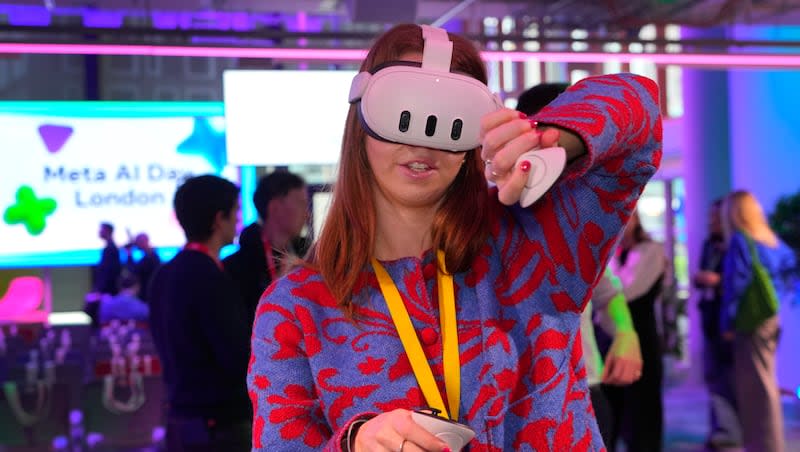Meta debuting education product for Quest VR headsets later in 2024

Meta — the parent company to Facebook — is launching an “education product” later this year for its Quest VR headsets used in classrooms.
According to a statement by Meta Quest, the product will allow school staff to program the Quest headsets with educational apps and allow them to moderate and control multiple headsets at once. This reportedly will “save teachers time” from having to prepare and update each individual headset.
The name of the product and its features have yet to be announced, but its launch will be designated to classrooms for fall semester, for students aged 13 and over, per Axios. Meta is not actually developing the content, but is providing the platform to companies developing the software program.
Why Quest headsets will be used in some classrooms
Nick Clegg, Meta’s president of global affairs, wrote in his statement that the educational product — which involves the collaboration of “educators, researchers and third-party developers” — is to help students “learn, apply and practice new skills” as well as “help teachers do what they do best: teach.”
In addition, the company’s program is designed for teachers and students to “visit places or experience things that would otherwise be impossible.”
“You will be able to teach biology and chemistry without having to have a fully equipped laboratory in the future … you will be able to walk the streets of Ancient Rome with students,” Clegg told CNN.
On top of this, Clegg told Axios that educators have been “clamoring” for the product. “It was educators knocking on our door saying, ‘Hey, this is a great way to teach people.’”
He added, “They tell us that, perhaps unsurprisingly, the immersive experience is just a lot more fun, engaging and memorable for students than it is teaching them things from dusty textbooks,” per Axios.
The devices are already being used
Meta’s push for classroom-based VR headsets first came in April of last year, when Clegg wrote about their potential on Medium. “The more developers build these programs, and the more governments, companies, schools, colleges and other institutions utilize them and invest in them, the more impact they will have.”
The following September, the company announced it was supplying the devices to 15 universities in the U.S., with Purdue Global using them to “train nurses in virtual simulations of hospitals” and Arizona State University using them for language learning, according to Axios.
But it comes at a cost
According to CNN, the VR headsets might be too pricey for some schools. Meta’s Quest 3 device, for instance, reportedly starts at $499 each.
Clegg told CNN the cost is “an issue” due to the new technology, but he has hope it could save money elsewhere, mentioning that a trip to the museum may not even require such a trip.
“I think it could make many really valuable education experiences much cheaper,” Clegg told CNN.
Likewise, Clegg claimed Meta may not see profitable results once the technology is implemented.
“We accept that it’s going to take a long time, and we’re not going to be making any money on this anytime soon,” he told Axios. “We’re investing billions of dollars in constantly iterating on the technology.”

